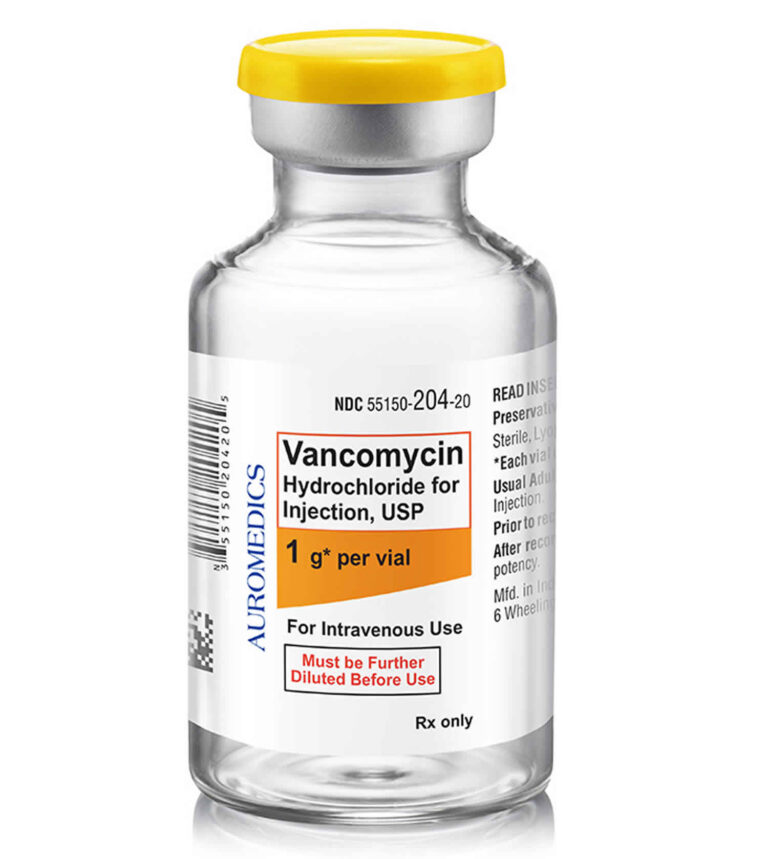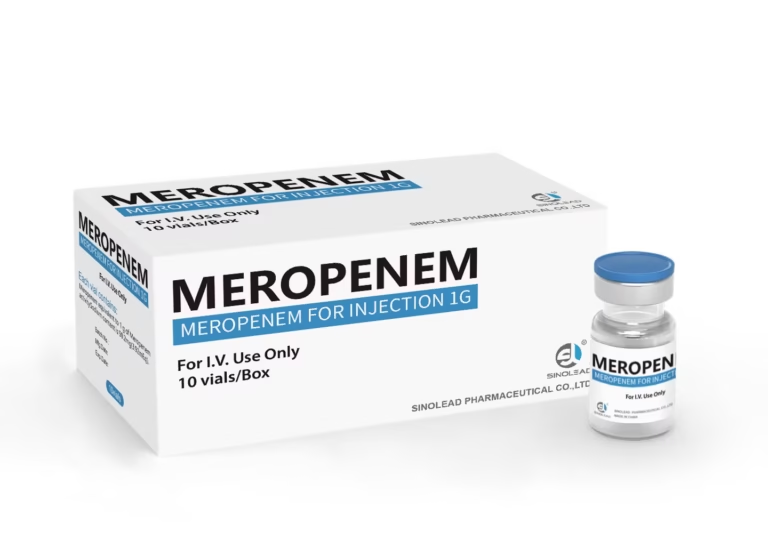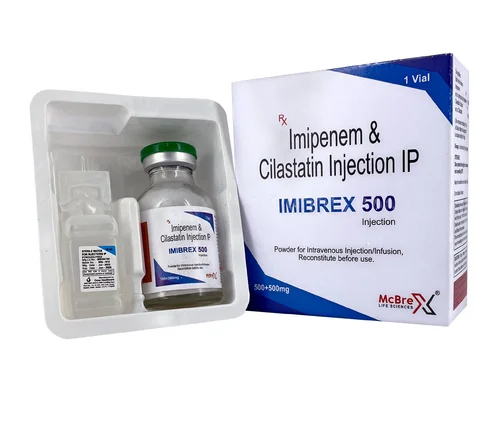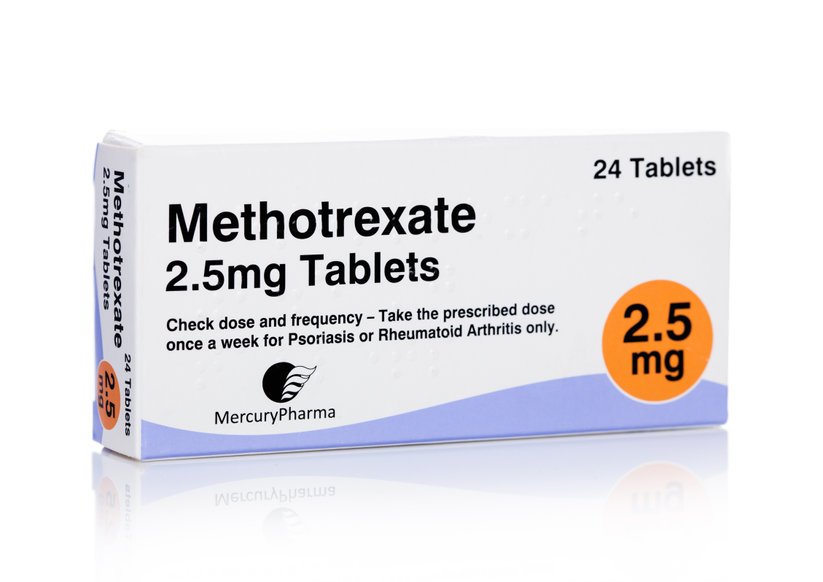
Methotrexate Tablets
Methotrexate is a well-known medication used to treat various autoimmune diseases and cancers. It is listed as a disease-modifying antirheumatic drug (DMARD) and chemotherapy agent. Below is a detailed drug profile, including its uses, side effects, and popular brand names.
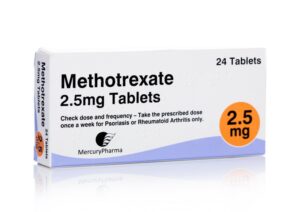
What is Methotrexate?
Methotrexate is a folate antagonist that inhibits the enzyme dihydrofolate reductase. It is involved in DNA synthesis. It helps control the growth of abnormal cells and inflammation in autoimmune diseases by interfering with folate metabolism.
Mechanism of Action
Methotrexate works in two ways:
- Immunosuppressive Effect
It suppresses the overactive immune system, making it useful for autoimmune diseases like rheumatoid arthritis.
- Anticancer Effect
Methotrexate prevents the growth of rapidly dividing cells. It interferes with DNA replication to treat cancer.
Uses of Methotrexate
Autoimmune Diseases
It is used to treat autoimmune diseases which are enlisted below:
- Rheumatoid arthritis (RA)
- Psoriasis
- Systemic lupus erythematosus (SLE)
- Inflammatory bowel disease (IBD)
- Vasculitis
Cancer Treatment
Methotrexate is also used in chemotherapy for cancers such as:
- Leukemia
- Lymphoma
- Breast cancer
- Head and neck cancer
Ectopic Pregnancy
In some cases, methotrexate is used to treat ectopic pregnancy, where a fertilized egg grows outside the uterus.
Dosage and Administration of Methotrexate
Standard Dosage
- 7.5 mg to 25 mg once a week in case of Rheumatoid Arthritis.
- In case of Cancer Treatment high doses may be used, with the exact amount depending on the type of cancer.
Administration
- It can be taken in pill form.
- It is also administered by injection, for cancer treatments or severe autoimmune conditions.
Special Dosage for Children
For pediatric conditions such as leukemia or juvenile arthritis, the dosage varies based on the child’s weight and condition.
Side Effects of Methotrexate
Common Side Effects
- Nausea and vomiting
- Fatigue
- Loss of appetite
- Mouth sores
- Hair thinning
Serious Side Effects
- Liver toxicity (hepatotoxicity)
- Bone marrow suppression (leading to low blood cell counts)
- Pulmonary toxicity (lung inflammation)
- Renal toxicity (kidney damage)
- Teratogenicity – Methotrexate is contraindicated in pregnancy due to the risk of birth defects.
Long-Term Effects
- Bone loss (osteoporosis) with long-term use
- Increased risk of infections due to immune suppression
Warning Signs
If you notice any severe side effects like difficulty breathing, unexplained bleeding, or jaundice, seek immediate medical attention.
Monitoring During Treatment
Its treatment requires regular monitoring of the side effects by following tests.
- Liver function tests
- Complete blood count (CBC)
- Kidney function tests
- Chest X-rays (if pulmonary issues are suspected)
Contraindications and Precautions
Pregnancy and Breastfeeding
Methotrexate is contraindicated during pregnancy, as it can cause severe birth defects. Women of childbearing age should use effective contraception during treatment. It is also excreted in breast milk and should not be used while breastfeeding.
Alcohol Consumption
Patients should avoid alcohol, as it can worsen the liver toxicity when combined with methotrexate.
Pre-existing Conditions
- Liver disease
- Kidney disease
- Blood disorders
- Peptic ulcers
Drug Interactions of Methotrexate
It can interact with other medications, such as;
- Increase risk of toxicity when used with Nonsteroidal anti-inflammatory drugs (NSAIDs).
- When administered with Penicillin it can increase methotrexate toxicity.
- Sulfonamides can enhance the adverse effects of methotrexate.
Popular Methotrexate Brand Names
Below is a table summarizing popular brand names and formulations of methotrexate.
| Brand Name | Formulation | Strength | Common Use |
| Rheumatrex | Oral tablet | 2.5 mg, 10 mg | Rheumatoid arthritis, psoriasis |
| Trexall | Oral tablet | 2.5 mg, 5 mg, 10 mg | Rheumatoid arthritis, cancer |
| Otrexup | Injectable solution | 50 mg/ ml | Rheumatoid arthritis |
| Methotrexate (generic) | Oral tablet, injectable solution | 2.5 mg, 5 mg, 25 mg | Cancer, autoimmune diseases |
| Xatmep | Oral solution | 1 mg/mL | Pediatric leukemia treatment |
Alternatives to Methotrexate
- Biologic DMARDs
- Etanercept (Enbrel)– Often used in rheumatoid arthritis and psoriasis.
- Adalimumab (Humira)– Another biologic for autoimmune diseases.
- Non-biologic DMARDs
- Sulfasalazine– Used for rheumatoid arthritis and IBD.
- Hydroxychloroquine– Common in lupus treatment.
- Chemotherapy Alternatives
Agents like cisplatin, doxorubicin, and cyclophosphamide are also a option for treatment, depending on the type of cancer.
Conclusion
Methotrexate is a medication used for various autoimmune diseases and cancers. While it offers significant benefits, it comes with potential side effects, making regular monitoring essential. It has great significance in treating conditions like rheumatoid arthritis, psoriasis, and certain cancers. Use Properly and under medical supervision to ensure its safety and effectiveness.
